The Lab Knows
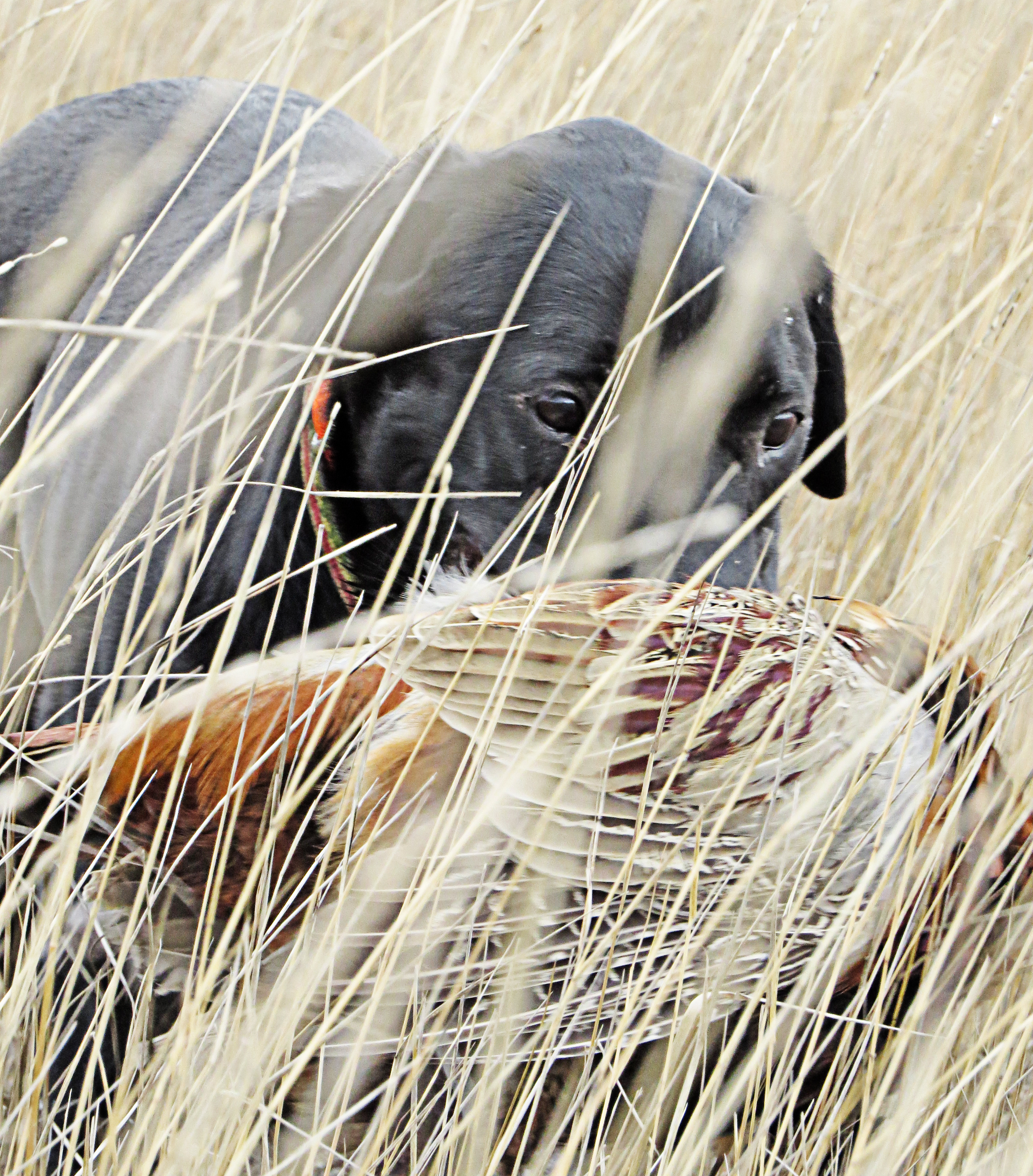
Wyatt knows he’s black. He also knows this is the color of night. He’s been able to surmise that humans have terrible night vision. During daylight hours when we take breaks from hunting, he plots. He knows most mischief will not fly in the light of day. Raiding other camps, gnawing a nearby rotting deer carcass, tapping into a hidden trash cache — all plans reserved for the cover of darkness. He’ll execute these plans silently standing right beside you within 10 yards. And he will ignore all calls unless you are lucky enough to shine a flashlight on him, which miraculously restores his ability to hear. Schemer.
I prefer a smart dog.
It’s a requirement for the way I like to hunt. No whistles. No yelling. No beeping collars or hawk calls. I want to hear the wind, the exhale of running dogs, the flush of birds and percussion of burnt powder. My bird dogs get to figure it out. They learn, adapt, become a part of this mongrel team of dog and human working toward a shared goal of bringing feathers to hand. I don’t want the dogs looking to me for direction. I want them fulfilling their purpose, breaking through linear thought to solve equations of wild birds.
Could we kill more birds if I reigned in free-running, free-thinking dogs — maybe. But then I’d sacrifice what I find most amazing; the front row seat to expansion of their consciousness. The times when bird dogs amaze themselves.
But smart dogs are trouble. And this black lab is living proof. Give him leash and he will take it. All.
Wyatt is not an alpha, not untrainable. But he is conniving. He could be broken of such habits, but always in the back of my mind there would be the question: would it break his will to become more, do more. So I don’t discourage it. It’s become an ongoing game of outsmart that we play. And he knows this too.
He has figured out what a camera is. He knows if the camera comes out of my vest there’s likely something of interest that he can put to chase. His head comes up on a swivel watching for the direction the lens will be pointed thereby revealing the coordinates to charge. I even test him sometimes when he’s really worn down, I’ll grab the camera just to see if he’s paying attention or exactly how tired he is.
This lab has grown accustomed to hunting in mixed company with pointing breeds. In general he knows that they have better noses. He realizes that by and large they are faster. But he also knows they do not ground track the way he does, especially on running birds. In open country while he hunts on his own, he always keeps one eye on the high-head, long-running canines. When they freeze he takes it as a cue to break into double time for their point. He is using pointers as a tool.
I noticed his latest evolution earlier this season. In the heavy cover of the Northwoods, seeing pointing dogs at any distance is nearly impossible. Wyatt now listens to hunters who use the command: “Whoa.” He even recognizes alternate instructions such as “go easy,” often used by friends coaching Shorthairs on moving quarry. This alerts him that the other dog might “like” his flushing assist. (Don’t worry pointer purists, I call him off birds unless a flush is wanted).
I guess I’m not shaping my hunting partners to someone else’s vision of perfection. We just hunt. Quarter-mile retrieves in the thickest of cover, out of sight, out of hearing on winged wild running birds – perfection happens, unscripted. And my only role is admiration.
I recently purchased a glowing light to clip to Wyatt’s collar at night in camp. I know he’s plotting how to disable it and return to the subterfuge of darkness.

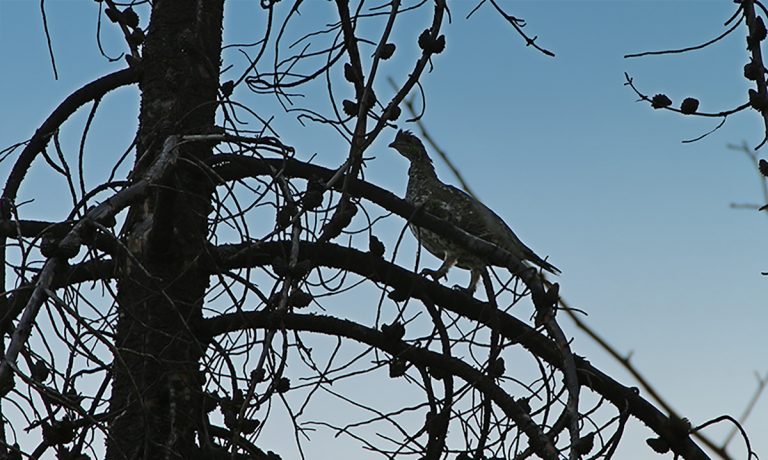
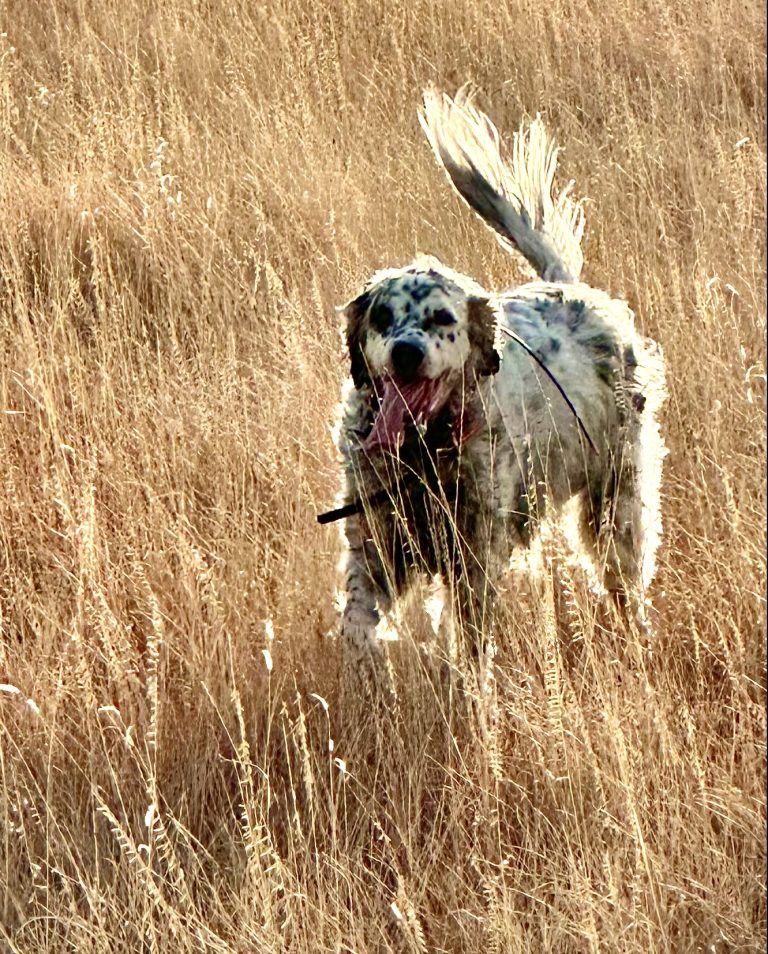
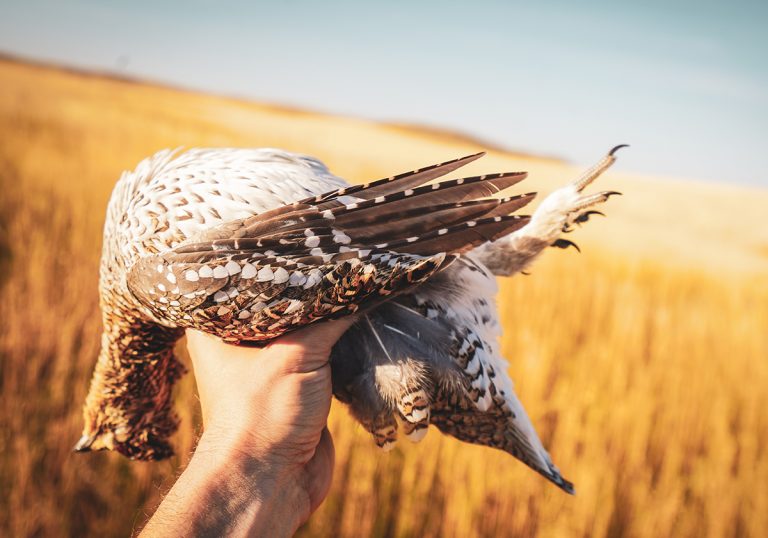
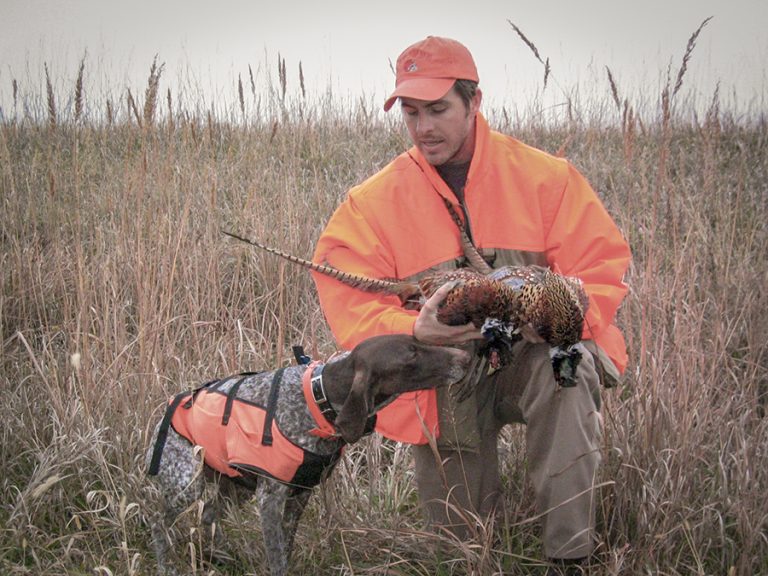
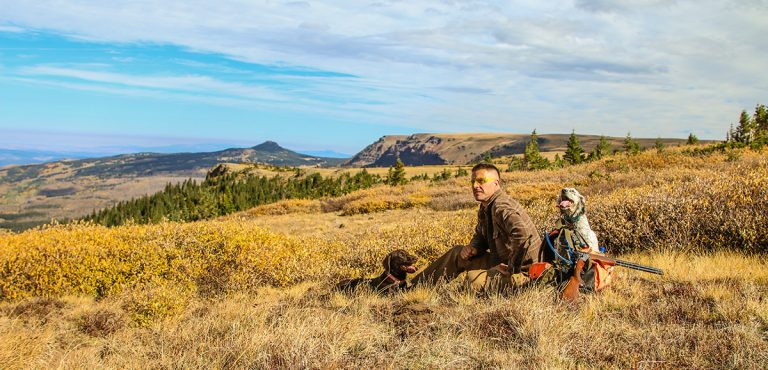
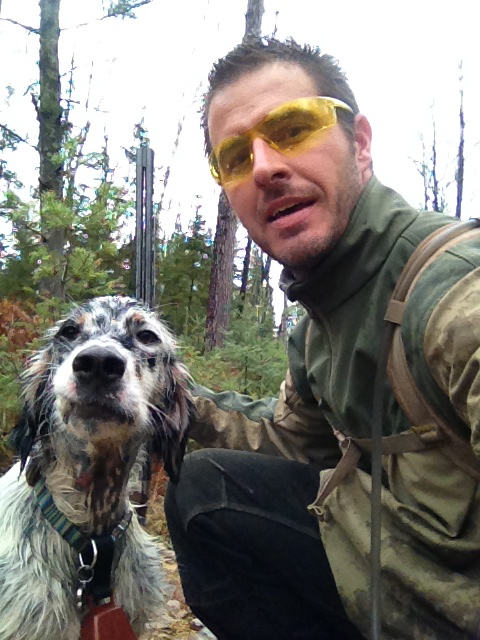
Hmmm……why do parts of this story sound hysterically familiar? If Wyatt knows he’s black, then Colt definitely knows he’s a “pipe bomb”. Love it.
Our black lab/rottie mix also knows he’s black and can’t be seen in darkness. He will stand still in the yard so we don’t know where he is and therefore can’t bring him inside! As soon as you say “Diesey-boo we see you” he knows the game is up! He tried this once in the snow and was confused as to why it didn’t work
Labs can mark fallen birds. Pointers seem to get lost on this. Tough mouths on pointers and cannot handle minus zero temps. Fantastic dogs in warmer climates.
I’ve trained and/or hunted over most of the common breeds. My current partner is a Gordon Setter, but there are times when I miss my old labs. There is no finer dog for hunting Blue Grouse than an experienced Labrador. First they learn to work side-hill above you and they discover the birds nearly always fly downhill toward the gun. Next they learn they can push birds toward the gun in other terrain as well. The ability to find dead or crippled birds in heavy cover is unparalleled by other breeds. Gotta love the Labadozer!